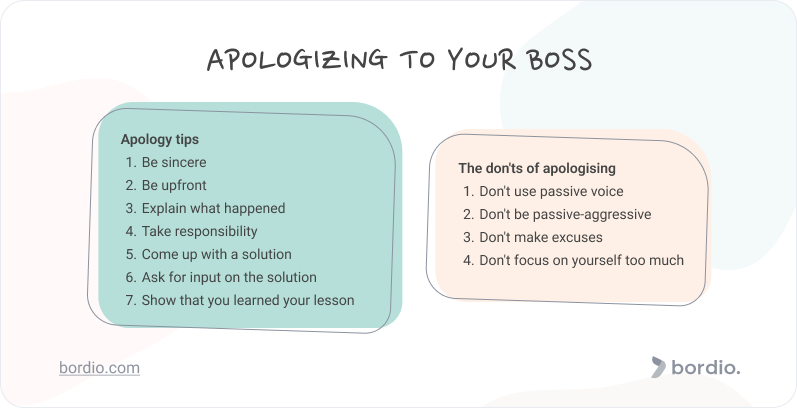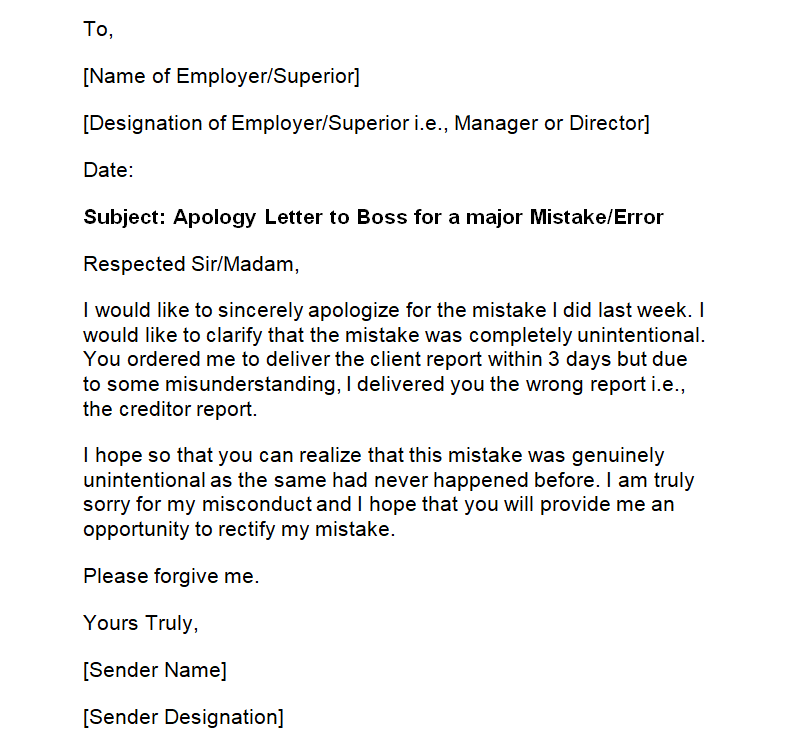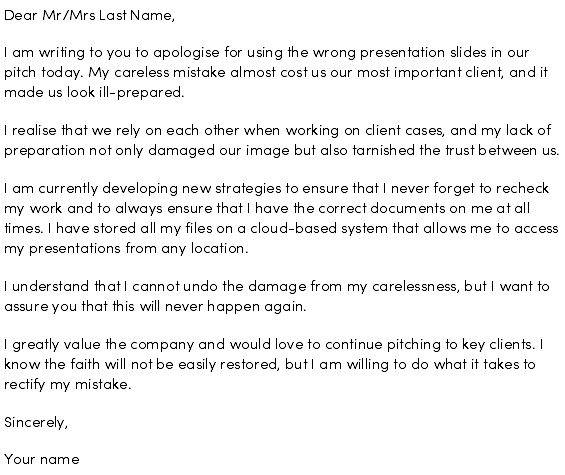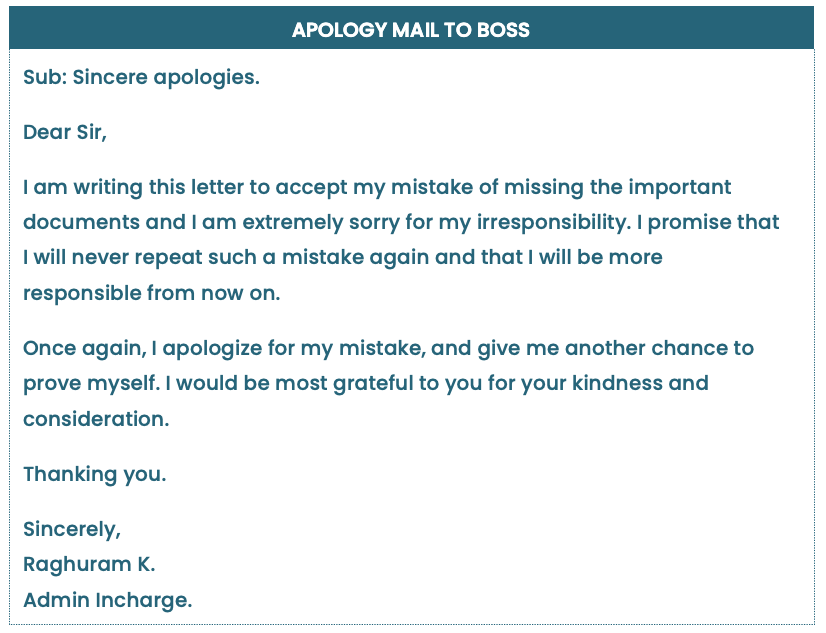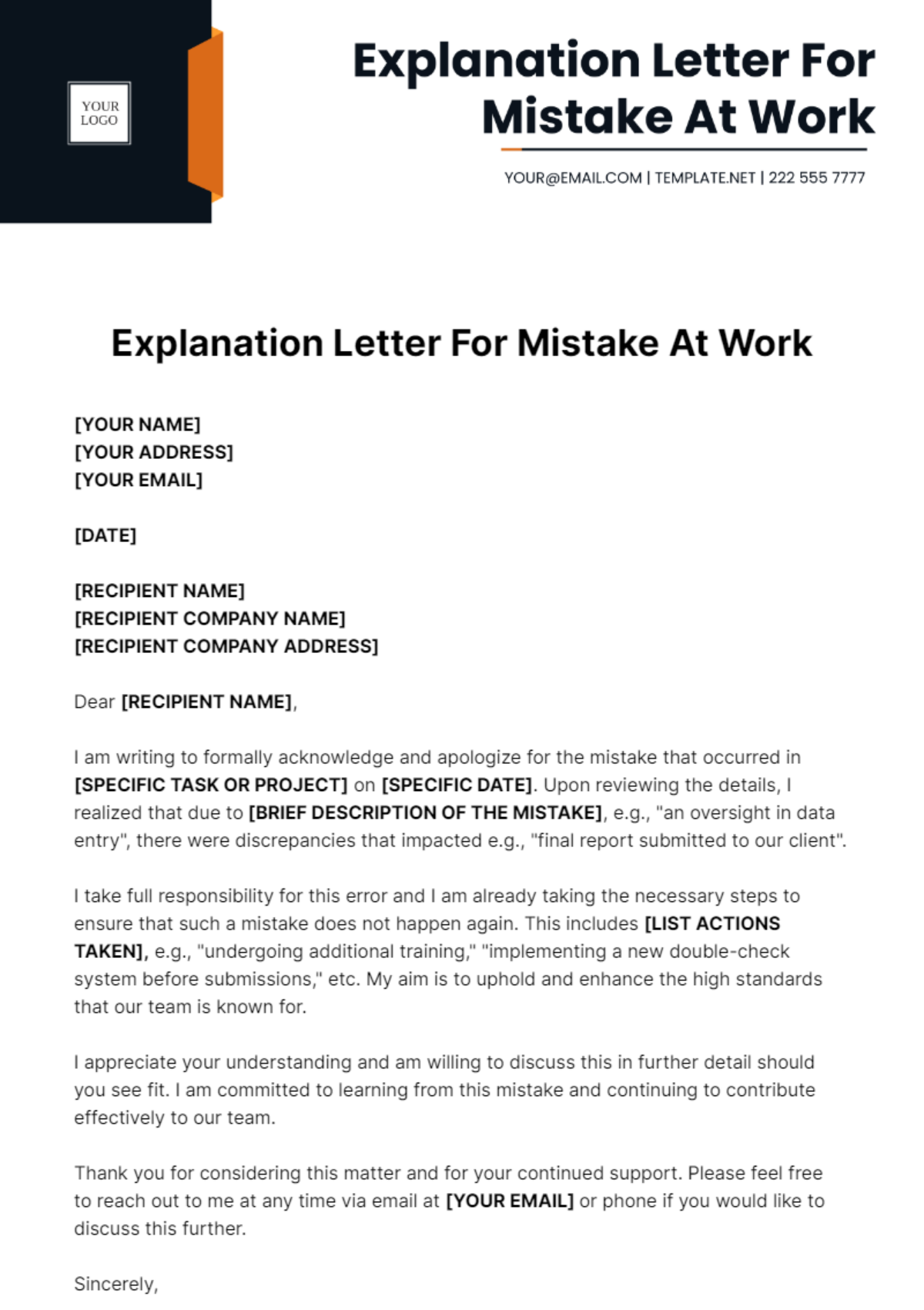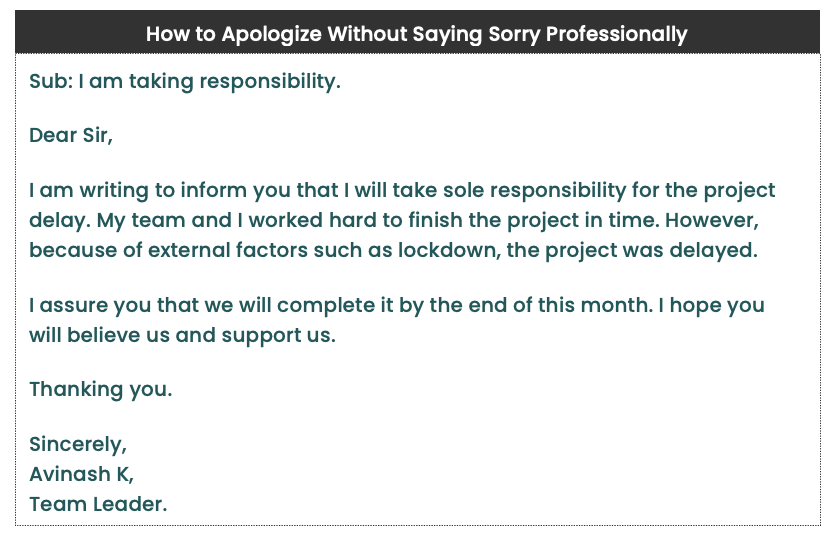How To Tell Your Boss You Made A Mistake

The knot in your stomach tightens. The words catch in your throat. The mistake, a glaring error in judgment or a simple oversight, hangs heavy in the air, threatening to unravel projects, deadlines, and perhaps even your professional reputation. Confronting your boss about a mistake is never easy, but it’s a critical skill that can define your career trajectory.
This article provides a practical guide to navigating this challenging situation. We’ll explore how to approach your supervisor, what to say (and what not to say), and how to frame the situation in a way that demonstrates accountability, ownership, and a commitment to resolution. Learning to address mistakes head-on is essential for professional growth and building trust within your team.
Timing is Everything
Don't delay. The longer you wait to address the mistake, the more potential damage it can cause. Immediate action often allows for quicker mitigation.
Consider the severity and urgency of the issue. For minor errors, a brief, informal conversation might suffice. For larger problems, schedule a dedicated meeting to discuss the issue thoroughly.
"Procrastination is the thief of time," and in this scenario, also the thief of potential solutions, delaying could further complicate the situation.
Prepare Your Case: Facts, Not Excuses
Before speaking with your boss, gather all the facts. Understand the scope of the mistake, its potential impact, and the steps you've already taken (or plan to take) to rectify it.
Resist the urge to make excuses. Blaming others or deflecting responsibility will only erode trust and demonstrate a lack of accountability. Focus on what happened, why it happened, and how you can prevent it from happening again.
Prepare potential solutions. Coming to your boss with a problem and a potential fix demonstrates initiative and a proactive approach.
The Conversation: Honesty and Ownership
Start by clearly and concisely stating the mistake. "I made a mistake," is a powerful and direct statement. Avoid vague language or beating around the bush.
Take ownership of your actions. Acknowledge your responsibility without shifting blame. "I understand that this error caused [specific consequence], and I take full responsibility."
Explain what happened, but keep it brief and factual. Focus on the process breakdowns that led to the error, not personal shortcomings.
Offer solutions. Outline the steps you've already taken or plan to take to correct the mistake. If you need assistance, be specific about what you need.
Express your commitment to preventing future errors. Describe the steps you'll take to avoid similar mistakes in the future, such as improved processes, additional training, or seeking guidance.
Navigating Different Personality Types
Consider your boss's personality and communication style. Some managers appreciate directness, while others prefer a more collaborative approach. Adapt your delivery accordingly.
If your boss is known for being critical, anticipate their questions and prepare thorough answers. If they are more supportive, emphasize your commitment to learning from the experience.
Regardless of their personality, maintain a professional and respectful demeanor throughout the conversation. Even if they are upset, remain calm and focused on finding a solution.
Beyond the Conversation: Follow-Up and Learning
After the conversation, follow up with your boss to confirm your understanding of the agreed-upon solutions. Provide updates on your progress and be transparent about any challenges you encounter.
Treat the mistake as a learning opportunity. Analyze what went wrong, identify areas for improvement, and implement changes to prevent future errors.
Document the incident and the steps you took to resolve it. This documentation can be valuable for future reference and can demonstrate your commitment to continuous improvement.
Building Trust Through Transparency
Addressing mistakes honestly and proactively builds trust with your boss and colleagues. It demonstrates that you are accountable, responsible, and committed to doing your best work.
Transparency fosters a culture of open communication and encourages others to come forward with their own mistakes, creating a more supportive and collaborative work environment.
Ultimately, how you handle your mistakes is a reflection of your character. Embracing accountability and focusing on solutions will not only mitigate the immediate damage but also enhance your professional reputation in the long run.
"The greatest mistake you can make in life is to be continually fearing you will make one."



